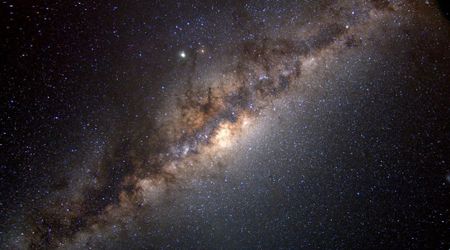U.S. satellite firms heed foreign demands of 'sovereign' space democracy amongst competition

The arena of space observation is experiencing exponential innovation, putting the market in intense competition. The larger picture of global collaboration and technological demand from foreign countries is bringing autonomy to space-based Earth observation technology. Earth observation satellite operators, such as BlackSky, Maxar Intelligence, Planet Labs, and Capella Space, are aiding foreign nations that desire their independent surveillance capabilities, as reported by SpaceNews.

Dave Gauthier, a former United States National Geospatial-Intelligence Agency official, hinted at this shift in reliance. He shared that countries now "need their own eyes in the sky" compared to how they used to depend on America. The competitive commercial market made it easier to move away from the dominance of major power governments in the remote-sensing industry. This move by US establishments could also reflect the budget cuts across agencies by the Trump administration. As international doubts about American intelligence increase, it could be better for firms to have an elaborate clientele, which, as Gauthier said, "is good for business."

A primary reason for such an effort from foreign nations is national security, as it allows direct control over satellite data. External providers would not have an understanding of local needs, which influences their priorities and limitations. Independent monitoring of borders is easy with the present commercial satellite industry, requiring only minimal resources and expertise. Access to high-resolution satellite imagery can be a sign of economic development and provide local job opportunities in the field. This fosters reduced dependence on foreign data sources. "The demand is driven by the fact that so many sectors in a nation can benefit from access to geospatial intelligence. There's broad utility to having geoint (geospatial intelligence) capabilities at your disposal," Gauthier said.

Maxar Intelligence deployed its WorldView Legion six-satellite high-resolution imaging constellation with dedicated capacity packages. It allows foreign governments to direct satellite functions without establishing the infrastructure. "Customers can buy their own antenna, reserve time on Maxar's satellites, and direct where they want pictures taken. That's a simpler and much more affordable option than building, deploying, and operating a constellation," said Anders Linder, leading Maxar's international government business operations. Moreover, to develop geospatial intelligence products, Maxar Intelligence recently revealed an agreement with Sweden's largest defense contractor, Saab.

It was proof that these US-based companies are ready to provide their cutting-edge technology, reliable satellite constellations, and expertise in analytics, data processing, and ground structures. The needs of this equipment go beyond defense usage and focus on agriculture, civilian property surveillance, and enforcing tax compliance, per SpaceNews. Brian O'Toole, CEO of BlackSky, said that many countries with limited space capabilities were in favor of "intelligence-as-a-service models." It meant heftier contracts with long-term collaborations across the world.
U.S. satellite firms look abroad as foreign nations seek 'sovereign' eyes in the sky https://t.co/jFWorgA9Ww pic.twitter.com/lG2v5DvqT2
— SpaceNews (@SpaceNews_Inc) June 5, 2025
"There's a much more favorable market for US commercial firms. Many countries don't have established defense industries that work on space programs, so they are going to buy the best commercial capabilities they can," Gauthier commented. With secret knowledge of budget shrinkage in imagery companies, international expansion was also a means to sustain these firms. The pressure of the US government in the area of revenue forced American firms to rely on these foreign contracts to provide the steady, long-term funding expected by their investors.









